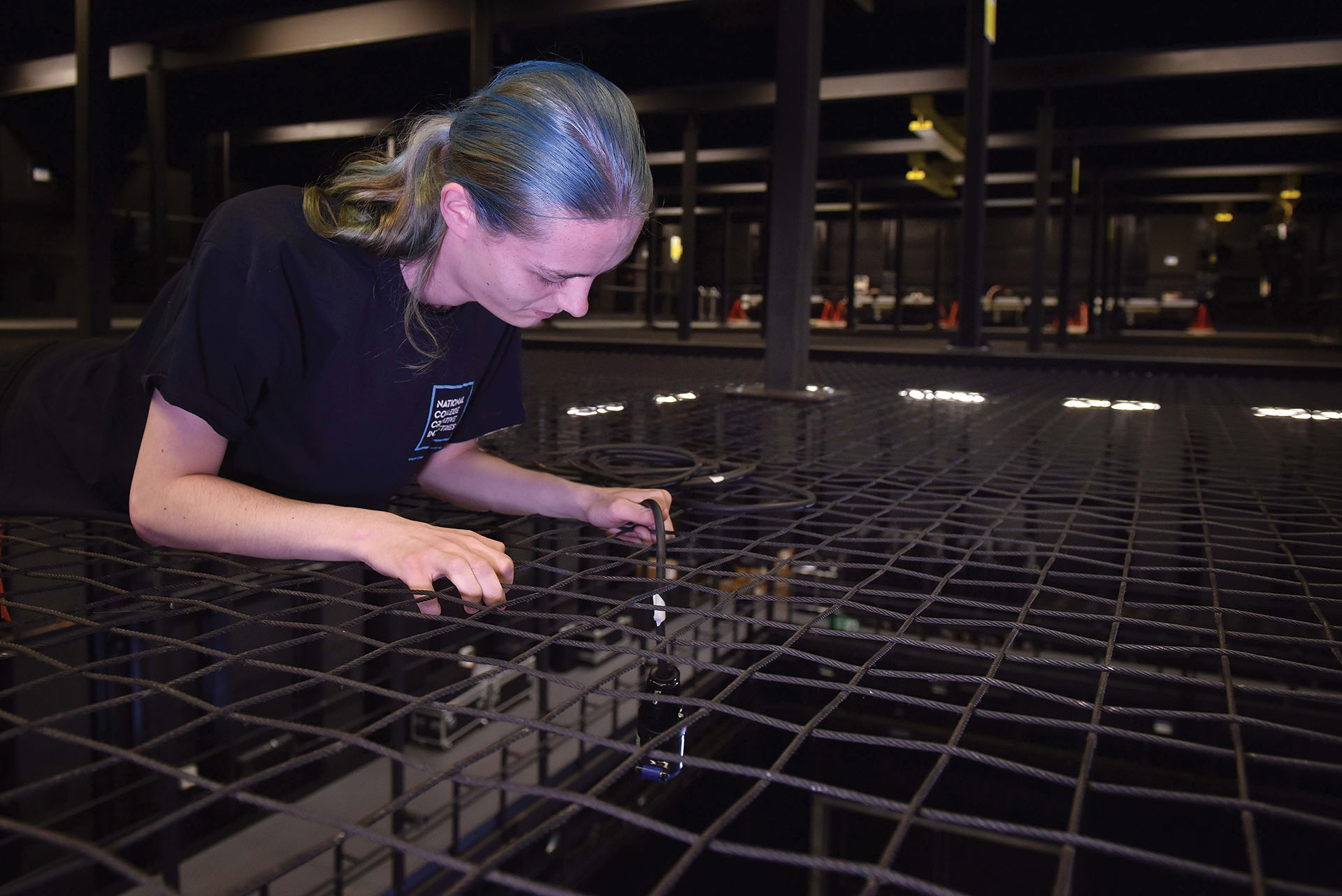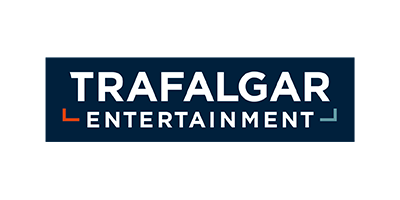Entry Requirements
No formal entry requirements
Qualifications
Level 3 Live Event Technician
Duration
18 months (of which 15 will be in practical learning).
Live Event Technicians ensure seamless operations from sound to staging, allowing organisations to deliver high-quality, adaptable events.
The Level 3 Creative Industries Production Technician Apprenticeship (Live Event
Technician pathway) is designed to give an apprentice professional knowledge and experience in the live event production industry.
Live Event Technician apprentices will learn:
- Live sound engineering & audio system setup.
- Lighting design & operation for live performances.
- Rigging, staging & structural safety.
- Power distribution & technical logistics for live events.
Live Event Technician apprentices are suitable for organisations such as:
- Event Production Companies: Managing concerts, festivals, corporate events, and live performances.
- AV & Technical Service Providers: Delivering technical support for conferences, trade shows, and product launches.
- Event Venues: Arenas, outdoor venues, and convention centres hosting live events.
Typical Responsibilities
Typical responsibilities for a Live Event Technician Apprentice could include:
- Installing and configuring complex audio, lighting, and video systems for live events.
- Operating and monitoring live event systems during performances, ensuring seamless sound, lighting, and video coordination in real time.
- Preparing, packing, and managing technical equipment for transportation, ensuring safe and efficient delivery to local or international venues.
- Safely utilising rigging equipment to install overhead lighting, audio systems, and visual displays in challenging environments such as outdoor venues or large arenas.
Entry Requirements
Knowledge, Skills and Behaviours
- Product knowledge and terminology including the theory surrounding chosen specialisms such as sound, light and video.
- Understand planning processes required to deliver a live event and the importance of eliminating errors that can prove costly on site.
- Selection of the correct tools and equipment for tasks.
- Electricity and Temporary Electrical Supplies; theory, practice and safety.
- Understand Management structures within event environment, site etiquettes and culture, including on site communication and interdependencies between departments.
- Working knowledge of stock control, warehousing, storage, logistics and transportation.
- Knowledge of first aid and health and safety including manual handling, work at height, noise, working hours and fatigue and related legislation.
- Knowledge of the environmental impacts of live events and how it is managed.
- Lifting operations; theory and practice.
- A clear understanding of the sectors within the live events industry.
- Preparation, test, repair and maintenance of equipment such as amplifiers, speakers and sound control desks; lights, dimmers & lighting control desks or video screens, projectors and associated control equipment.
- Assembly of systems from component parts.
- Fault finding in components and systems.
- Operation of specialised technical equipment and tools.
- People management and interpersonal skills especially the ability to react to varied working environments.
- Computer Literacy including specialist software systems such as CAD/Design and Rental Management.
- Understand and interpret system specifications and drawings.
- Logistics, with specific reference to truck pack, the ability to judge required space for loads, and prepare Carnets & Manifests for shows travelling outside of the UK/EU.
- Lifting/Ground Rigging – much of the technical equipment used in live events is hung from pre-rigged support systems.
- Customer Service – dealing politely and respectfully with customers, ranging from Account Managers to Production Managers to the end client when on site.
- Have the ability to work as part of a team, which may vary in size and dynamic.
- Have the drive and determination to complete the job on time.
- The ability to work and remain calm & safe under pressure.
- Have a safe attitude – specifically regarding working with electricity, work at height, manual handling & noise.
- Have the ability to adapt to change with enthusiasm.
- The ability to demonstrate problem-solving abilities.
- A willingness to work unsociable hours in varying locations for extended periods.
- Punctuality, reliability and personable responsibility.
- Be self-motivated with a positive ‘can do’ attitude, clear goals and ambition.
- The ability to be an effective communicator.
Apprentices will cover the following modules:
- Safe Working Practices
- Electrical Fundamentals
- Equipment Testing & Troubleshooting
- Maintaining Equipment
- Venue Considerations
- Servicing Requirements
- Troubleshooting
- Lighting Equipment
- Audio Equipment
- Industry Awareness
- Wellbeing
- Programming and Operations
- Storage and Logistics (Part 1)
- Storage and Logistics (Part 2)
- Technical Specifications – Lighting
- Technical Specifications – Audio
- LOLER
- Automation
- Rigging
- Network Infrastructure
- Calibration of Complex Systems
- Packing and Transportation
- Assemble and Configure Project Planning
- Assemble and Configure Project – Execution
Where do you see yourself?

Operating under the direction of the Technical Management Team, a
Theatre Technician will provide support for the construction, rehearsal,
presentation and removal of equipment for a live performance.
Audio video (AV) technicians set up and operate the video and audio equipment used to enhance live events. They assemble microphones, mix sound boards, coordinate graphics, operate spotlights, manage video recordings, and provide technical support for events.
A Production Manager’s role is hugely varied, covering productions from audition to the end of the show’s run. A project management role, they oversee all elements of the show.
Lighting is a key element of any show, adding to the atmosphere and creating depth in key moments. A Lighting Designer creates these moments.
A Stage Manager works closely with a Performance Director, supporting the technical crafts and ensuring that everything runs smoothly on stage and behind it.
A Repair Engineer’s job is to ensure that all the equipment needed to put on an event runs as expected, is kept up to date with maintenance schedules, and to be on hand to fix anything that breaks during a performance.






